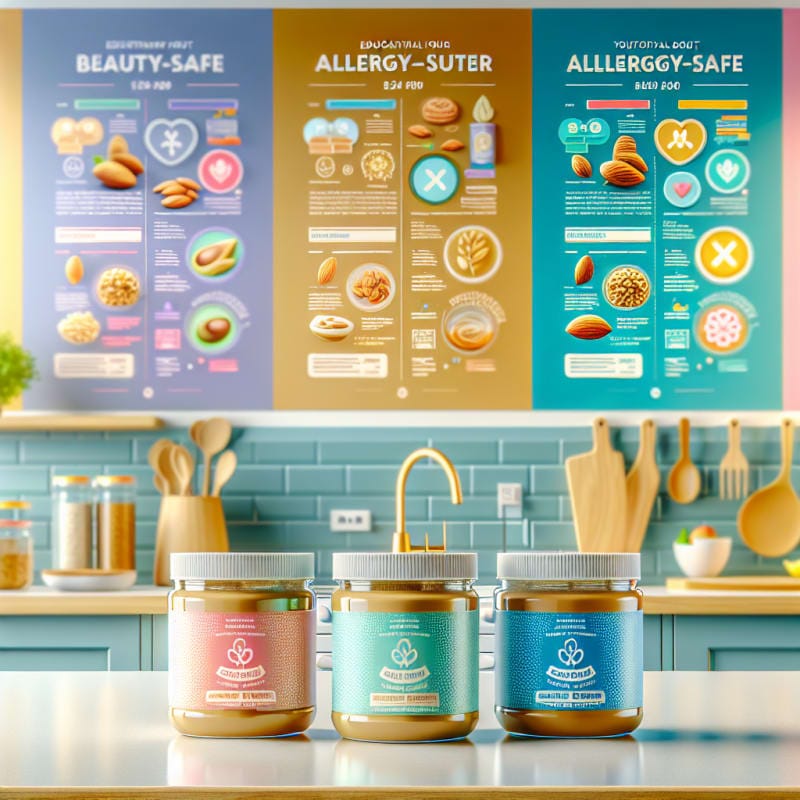Partial Colostrum Feed May Raise Infant Peanut Allergy Risk: Key Insights for Parents and Caregivers
Understanding food ingredients and their impact on health is crucial for anyone shopping or consuming packaged foods, especially for families with infants or food sensitivities. Recent research has shed light on how early feeding practices may influence the risk of peanut allergies in children, a growing concern worldwide.
What Is Colostrum and Why Does It Matter?
Colostrum is the nutrient-rich, antibody-packed early breast milk produced in the first days after childbirth. It plays a vital role in developing an infant’s immune system and gut health. However, a recent Medscape article highlights new evidence that partial colostrum feeding—where infants receive only some colostrum and are supplemented with formula or other feeds—may raise the risk of developing peanut allergies.
Key Findings: Partial Colostrum Feeding and Peanut Allergy Risk
- Increased Risk: Infants who received only partial colostrum feeds were more likely to develop peanut allergies compared to those exclusively breastfed with colostrum in the first days of life.1
- Immune System Development: Exclusive colostrum feeding supports healthy immune system training, potentially lowering allergy risk.2
- Early Introduction: The timing and method of introducing allergens like peanuts also play a significant role.3
| Feeding Practice | Relative Peanut Allergy Risk | Key Considerations |
|---|---|---|
| Exclusive Colostrum Feeding | Lowest | Supports immune tolerance |
| Partial Colostrum + Formula | Higher | May disrupt immune priming |
| Formula Only | Highest | Lacks protective antibodies |
Why Is This Important for All Families?
Food allergies, especially to peanuts, are a growing public health issue. In the U.S., peanut allergy affects up to 2% of children and can cause severe reactions.4 Understanding how early feeding choices impact allergy risk empowers parents to make informed decisions, especially as new dietary guidelines and labeling laws emerge globally.5
Recent Food Safety Alerts and Dietary Regulations
- Food Recalls: The FDA regularly issues recalls for products with undeclared allergens, which is critical for families managing food allergies.
- Labeling Laws: The EU’s EFSA and the U.S. FDA require clear labeling of major allergens, but vigilance is still needed as new ingredients and formulations enter the market.
- Emerging Trends: Plant-based and keto foods are gaining popularity, but may contain novel proteins or cross-contaminants relevant to allergy sufferers. Recent news reports highlight recalls of plant-based products due to allergen contamination.
Q&A: Frequently Asked Questions
A: Consult your pediatrician about safe feeding alternatives. Early introduction of allergenic foods under medical guidance may help reduce allergy risk.3
A: Sign up for alerts from the FDA or use apps like Food Scan Genius for real-time updates.
A: Not always. Some plant-based foods contain hidden allergens or are processed in facilities with cross-contamination risks.6
How Food Scan Genius Simplifies Smart Food Choices
For families managing food allergies or dietary preferences, ingredient transparency is essential. The Food Scan Genius app scans product barcodes to instantly reveal allergen risks, recalls, and ingredient details tailored to your needs.
User Testimonial: “As a mom of a child with multiple food allergies, Food Scan Genius gives me peace of mind at the grocery store. I get instant alerts if a product contains peanuts or has been recalled—highly recommended!” – Sarah T., New York
Long-Term Implications and Global Perspectives
- Public Health: Understanding early-life feeding practices can help reduce the burden of food allergies worldwide.
- Policy Changes: Authorities like the FDA and EFSA may update infant feeding and labeling guidelines as new evidence emerges.5
- Consumer Awareness: Staying informed about ingredient risks and food safety alerts is more important than ever, especially as food systems and dietary trends evolve.
Conclusion: Making Safer Food Choices Starts with Knowledge
Whether you’re a parent, caregiver, or simply someone interested in what’s in your food, understanding ingredient risks and staying current on food safety alerts is vital. With tools like Food Scan Genius and up-to-date research, making smart, safe food choices is easier than ever.
References
- Medscape. Partial Colostrum Feed May Raise Infant Peanut Allergy Risk. Full article
- Walker, W.A. (2010). Breast milk and the immune system. PubMed
- Du Toit, G. et al. (2015). Randomized trial of peanut consumption in infants at risk for peanut allergy. NEJM
- Gupta, R.S. et al. (2018). Prevalence and Severity of Food Allergies Among US Adults. JAMA
- FDA. Food Allergen Labeling and Consumer Protection Act (FALCPA). FDA.gov
- EFSA. Food Allergies. EFSA.europa.eu
Stay Informed, Stay Safe
For anyone concerned about food ingredients, allergies, or evolving food trends, continuous learning and smart tools like Food Scan Genius are essential. Download Food Scan Genius today at scangeni.us to make every food choice a safer one.





